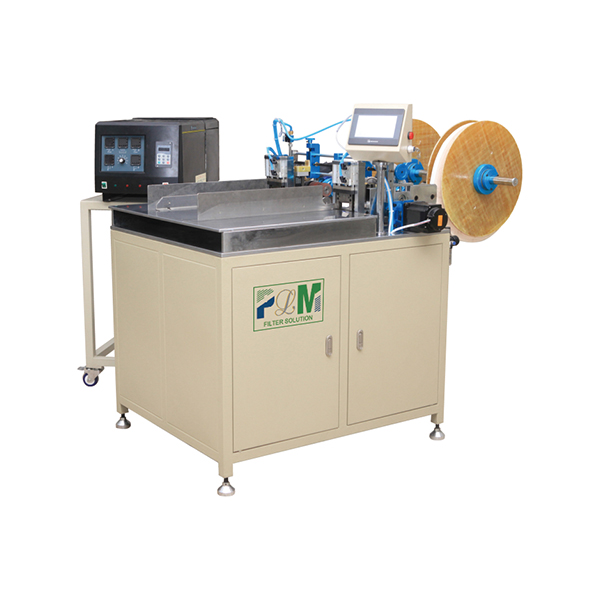नोभ . 07, 2024 22:33 Back to list
5 Micron CE Certified Sintered Porous Filter Tube for Efficient Filtration Solutions
Understanding CE Certification for 5 Micron Sintered Porous Filter Tubes
In today's industrial landscape, the demand for efficient and reliable filtration systems is paramount. Among various filtration technologies, sintered porous filter tubes have gained significant attention due to their effectiveness in applications requiring precise filtration. CE certification stands as a key aspect in ensuring that these filter tubes meet stringent European safety and environmental standards. In this article, we will explore what CE certification entails, the benefits of 5 micron sintered porous filter tubes, and their applications across various industries.
What is CE Certification?
CE marking is a declaration by the manufacturer that a product meets the essential requirements of applicable European directives and regulations. For products like sintered porous filter tubes, CE certification indicates compliance with health, safety, and environmental protection standards. This certification serves as a gateway for manufacturers to access the European market, ensuring that their products are safe for end-users and compatible with existing regulations.
To obtain CE certification, manufacturers must conduct rigorous evaluations and testing of their products. This often includes assessments related to the materials used, product design, and overall performance. For sintered porous filter tubes, factors such as porosity, filtration efficiency, and durability are critical components of this evaluation process.
The Importance of 5 Micron Filtration
When referring to 5 micron sintered porous filter tubes, we are discussing filters that can effectively remove particles that are 5 microns in size or larger. This level of filtration is often required in industries that deal with liquids and gases, ensuring that contaminants are effectively captured and that the end product is of high quality.
5 micron filtration is particularly critical in industries such as pharmaceuticals, food and beverage processing, and electronics manufacturing. For example, in the pharmaceutical industry, any impurities in the production process can compromise the quality and safety of medical products. Similarly, in the food and beverage sector, maintaining product purity is crucial for compliance with health regulations.
Moreover, in electronics manufacturing, even the smallest dust particles can compromise the integrity of sensitive components
. The ability of a 5 micron sintered porous filter tube to provide such a level of filtration improves product quality and operational efficiency.Advantages of Sintered Porous Filter Tubes
ce certification 5 micron sintered porous filter tube

Sintered porous filter tubes, made from materials like stainless steel or certain polymers, offer several advantages over traditional filtration systems. These advantages include
1. Durability Sintered filters are resistant to high temperatures and pressures, making them ideal for challenging industrial environments. 2. Chemical Compatibility Many sintered filter tubes are resistant to corrosive substances, which makes them suitable for a wide range of applications. 3. Uniform Porosity The manufacturing process of sintered filters ensures a consistent pore size, leading to reliable filtration performance.
4. Ease of Cleaning Unlike disposable filters, sintered porous filter tubes can often be cleaned and reused, reducing overall operational costs and waste.
5. Environmental Compliance With CE certification, users can have confidence in the environmental impact of using these filters, knowing they comply with European regulations.
Applications Across Industries
The applications of 5 micron sintered porous filter tubes span various sectors. In the water treatment industry, these filters are employed to remove sediments and contaminants from drinking water. In the chemicals sector, they are used to filter solvents and other reactive substances safely.
In the oil and gas industry, sintered filters help in the separation of different phases, ensuring optimal operational safety and efficiency. Additionally, in biotechnology, these filters play a crucial role in cell culture processes, where the purity of the environment can greatly influence the success of production.
Conclusion
5 micron sintered porous filter tubes represent a significant advancement in filtration technology, offering durability, efficiency, and compliance with CE certification. As industries continue to prioritize quality and safety, these filters are likely to remain a vital component in numerous applications. By understanding the importance of CE certification and the benefits of sintered filter tubes, businesses can make informed decisions that enhance both product quality and regulatory compliance.
-
OEM Truck Air Filters Machine Production Line - Custom Solutions
NewsMay.18,2025
-
Toyota Air Filter Producing Machine High-Efficiency Manufacturing Solutions
NewsMay.18,2025
-
Affordable Truck Air Filters High Quality & Low Cost
NewsMay.18,2025
-
Spiral Filter Core Making Machine High-Precision & Automated Solutions
NewsMay.17,2025
-
Buy PL-CQ1 Toyota Filter Cutting Machine Precision & Efficient Design
NewsMay.17,2025
-
Wholesale PLCY-200 Fuel Filter Tester Precision Testing & Bulk Deals
NewsMay.16,2025
